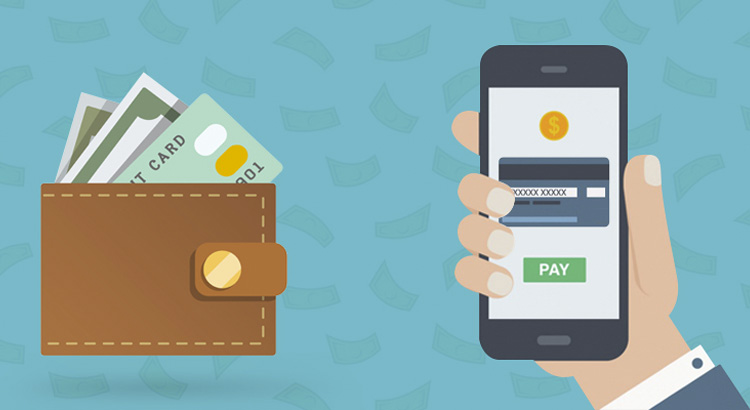Mobile wallets versus Payment banks – this is the huge discussion today! What is the most ideal way to approach advanced payments? Although mobile wallets and payment banks share a couple of features, they are altogether different from each other. In the following post we explain separately the functionality of both payment methods.
OUTLINE
- What are Mobile Wallets?
- Advantages of Mobile Wallets
- Disadvantages of Mobile Wallets
- What are Payment Banks
- Advantages of Payment Banks
- Disadvantages of Payment Banks
- Conclusion: Mobile Wallets or Payment Banks?
What are Mobile Wallets?
A mobile wallet is an application that allows you to use smart devices to save money and make transactions (payments and collections).
In general, it works similar to debit or credit cards, except that the information is stored on the smartphone or in the cloud and not on the plastic card chip. In addition, the communication between the devices is wireless (Near Field Communication).
These apps differ from those of “mobile payment” in that they do not necessarily have to be linked to a bank and its technological infrastructure.
Advantages of mobile wallets
Among the advantages of digital exchange, and in particular mobile wallets, is the reduction of costs and transaction times between users. They also mean savings in both directions for banks.
In addition, its use increases security in monetary transactions, since it has several security devices such as biometric authentication of the face (selfie) or a fingerprint, identity validation mechanisms through the generation of single-use keys (soft-token), and / or QR code.
Disadvantages of mobile wallets
Perhaps the main disadvantage of these tools is in the technological gap, since it is necessary to have mobile devices, in some cases of last generation, to be able to use them. In this sense, they can be exclusive.
On the other hand, the loss or theft of the cell phone or mobile device can bring serious security drawbacks, especially in the short term, since it is possible to check the defenses of the device.
What are Payment Banks?
A payment bank, which is a new model introduced by the Reserve Bank of India, is a bank that operates on a smaller scale without involving credit risk and whose banking functions are limited. In simple terms, a payment bank can receive deposits and offer remittances, but it cannot advance loans or issue credit cards.
Advantages of payment banks
One of the advantages of licensed payment banks is that they offer interest on the remaining unused money. While wallets do not offer additional features, payment banks offer fund transfers and withdrawals via ATMs. In addition, users are allowed to use net banking and internet banking in their transactions.
Disadvantages of payment banks
Among the disadvantages of payment banks, is that, although they offer debit cards and cheque books, they do not offer credit cards. As already mentioned, payment banks do not offer any loan or credit facility, as these operations involve credit risk.
Conclusion: Mobile Wallets or Payment Banks?
Since both mobile wallets and payment banks have their own pros and cons, choosing the right payment mode is extremely important. Thus, it is strongly recommended thinking which option will best fit your business model when making this decision.
Regardless of the payment mode you choose for your business, remember that you can always offer your customers both of them.
REFERENCES:
https://www.creditkarma.com/credit-cards/i/what-is-a-mobile-wallet/
https://economictimes.indiatimes.com/small-biz/startups/newsbuzz/interoperability-pits-payment-banks-against-mobile-wallets/articleshow/65380972.cms?from=mdr
https://www.livemint.com/Money/tSMsNn4AKWlrr9JH2KeVQK/How-are-payments-banks-difference-from-regular-banks.html
https://economictimes.indiatimes.com/definition/Payments-banks

